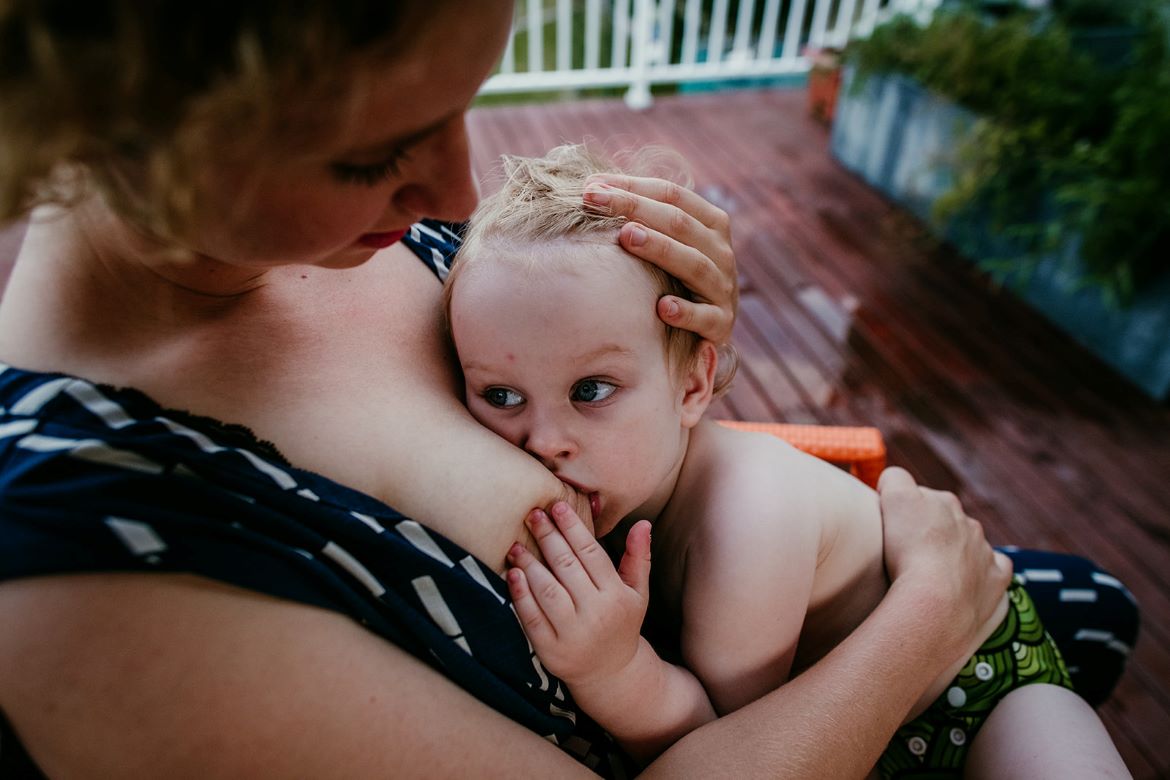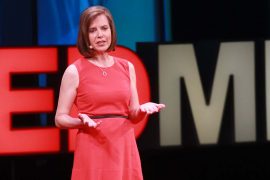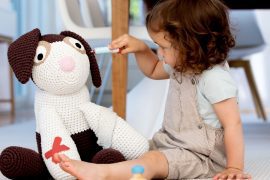By Emma Pickett
It’s been a challenging time for many different reasons. But never in the history of natural-term breastfeeding, has any child ever breastfed as much as your nursling. If there were records, they would have been smashed. It’s like your child has analysed the national food distribution network and has decided that YOU need to be a major manufacturer.
Before this whole lockdown business, breastfeeding was an important part of their life, sure, but you felt as though you were on top of the situation.
Now the situation very much feels as though it is on top of you. Very often literally on top of you. With a foot in your ear. Sometimes with a car in their hand. Sometimes twisted to try to see the television at the same time. Sometimes a nanosecond after the last breastfeed.
You’ve mastered the art of the Zoom call with the screen angled so you’re seen above the chin only. You can type at a laptop while breastfeeding and it doesn’t slow you down in the slightest.
You can complete a supermarket online shop, peel a potato, colour in a rainbow – all with someone attached at your nipple.
Sometimes you are so grateful that you continued to breastfeed in these uncertain times. Your child is still getting access to the immunological benefits of breastfeeding at a time in history when that has never seemed more sensible. But this is hard. Touched-out is a phrase that is sometimes used. Touched-out feels like a distant memory. You don’t feel you have control over your own body.
You are trying so hard to empathise with your child. This must be weird for them. They are stuck inside. No nursery. No wider family. Life feels different and they may not fully understand why. Grown-ups may have anxieties. Something is going on. Breastfeeding is the time when they feel safe and reassured. They can control this world that appears to be out of control. They request a breastfeed and it happens. They feel connected to you and feel they have some influence over their universe. They may also feel bored. Breastfeeding is something to do.
We can be empathic, and we can value natural-term breastfeeding and we can set limits all at the same time.
Breastfeeding an older child does not mean that YOUR feelings matter less. Breastfeeding an older child does not mean that YOU are not permitted to sometimes focus on yourself. You are allowed to feel fed-up. You are allowed to have had enough.
Your child does not want to be parented by a martyr to the cause of breastfeeding. They need a real human with feelings and desires and bodily autonomy.
This is their first intimate relationship. You are teaching them about kindness to others. You are teaching them that the feelings of others matter and sometimes we need to focus on other people ahead of ourselves. You are teaching them that sometimes people need to take a moment, have some space, have a breather. None of that is incompatible with being a good parent. It makes you a better parent.
We sometimes have conversations about ‘nursing manners’ with older children. If they pinch or hit us during feeding, we want to work hard to find strategies to change this. Parents do this because they don’t like getting pinched and hit. ‘Hey, this is not just a breast. This is ME!’ But we also work on this because we want our children to understand that pinching and hitting anyone isn’t kind. Kindness towards everyone begins with these small lessons and talking to a baby who is only a few months old about being gentle and having gentle hands.
Nursing manners extends beyond pinching hands. It means having kindness when the breasts are in the middle of an important meeting or the breasts are tired, or the breasts need to go and get a drink of water for themselves. Even from a young age, it’s OK to talk about the need to wait. Even when time is only beginning to be understood, it’s OK to say, “Do you mind if we just snuggle for a bit or read a book as my breasts/ milkies/ milk-milk need a bit of a rest?”
You are teaching a vital lesson about being open with feelings and how those in loving relationships can express vulnerabilities and the need for give-and-take and compromise.
None of this is incompatible with being a breastfeeding advocate and a passionate supporter of natural-term breastfeeding. If you think child-led weaning means you are NEVER allowed to refuse EVER EVER, you may be dissuading others from continuing to breastfeed in the longer term.
Gentle parenting means trying to shape gentle kind people and that happens with modelling and empathy and communication. I was once asked to contribute to a compilation of articles on gentle parenting. I offered a version of my blog on weaning toddlers and pre-schoolers. The editorial team declined as they didn’t feel talking about weaning and restricting breastfeeding fitted with their ethos. Really? I’m not sure they ever got dressed in the morning and purposely chose the shirt with the tinier, more fiddly buttons as it might mean they get a bit more work done that day.











